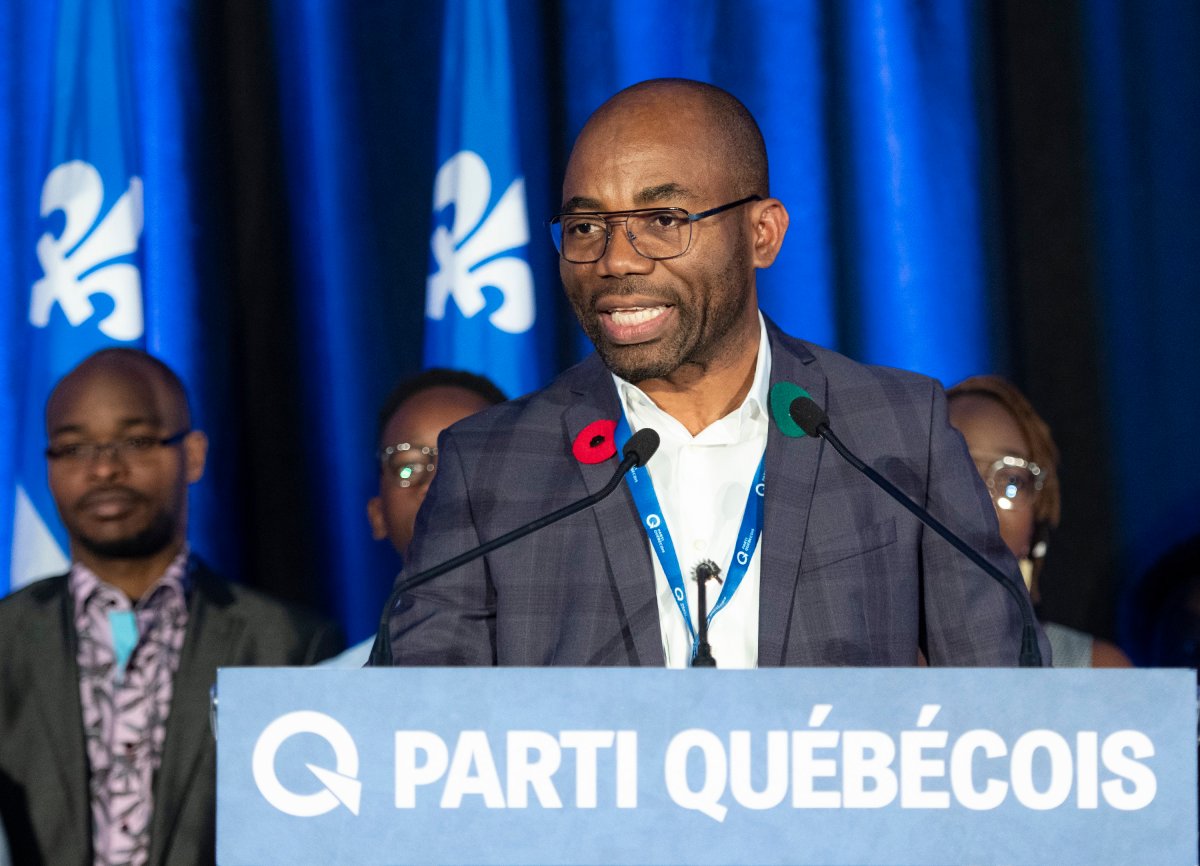Nearly 16 months after Jean-Francois Lisée stepped down from the top job, the Parti Quebecois on Saturday officially launched a leadership race where, for the first time, non-members will be able to cast a ballot.

The campaign kickoff comes amid an attempt revive the flagging fortunes of a party that set Quebec’s political agenda for more than four decades, but that now sits in fourth place in the National Assembly, where it has not won a majority since 1998.
The PQ co-ordinating committee set the election date for June 19, with a spending cap of $125,000 per candidate.
The committee refused a request by standup comedian Guy Nantel, who is considering a run, to change the date so he can keep a scheduled show time.
“There were no negotiations. We, the national executive, accepted the rules,” said PQ president Dieudonne Ella Oyono.
The new status of affiliated supporter — arguably a new category of membership — will open the door for Quebecers to take part in party proceedings and, for a $5 donation, to vote for the new chief.
READ MORE: Parti Québécois says it will become more positive, renews focus on independence
The party said an affiliate supporter must sign a declaration pledging belief in sovereignty and social democracy, the twin pillars of the PQ vision.
- Planned anti-carbon price protests prompt security warning to MPs
- Poilievre blames B.C. decriminalization, drug policy for record deaths
- Tories grill Liberals in question period about minister’s ties to lobbyist, PPE company
- A Quebec mayor opens up about the ‘shocking’ threats politicians are facing
“There are people who become members to vote for the leadership, but this pool could grow, because people are interested,” said Agnes Maltais, who will oversee the election.
“It’s exciting, as an idea, that you can participate in the election of a party leader directly,” said Maltais, a 20-year PQ legislator who stepped down in 2018.
Ella Oyono suggested that the ultimate goal is to boost membership numbers, which are falling, but declined to name a precise figure.
“Are we targeting 50,000 or 100,000? There is no specific objective. Of course 200,000 would be better,” he said.
The leadership race is the party’s third in six years. Nonetheless, Sylvain Gaudreault, MNA for Jonquiere and one of three declared candidates in the race so far, said election fatigue is not behind the new tactic.
“But we still have to contact everyone, we have to mobilize,” he told reporters.
Two other candidates have stepped forward: lawyer and former PQ nominee Paul Saint-Pierre Plamondon and Dawson College professor Frederic Bastien.
St-Pierre Plamondon also ran against Lisee for the leadership in 2016, seizing less than seven per cent of the votes. But his campaign attracted attention and led to Lisée appointing him as special adviser.
READ MORE: Quebec education minister weighs invoking closure to adopt Bill 40
Bastien, a history teacher at an English-speaking CEGEP, declared his candidacy last week, stating that the Parti Quebecois “must demonstrate an assumed nationalism which challenges the federal regime, in particular the constitutional law of 1982 which, without our consent, gave federal judges the power to strike down our laws.”
On top of comedian Guy Nantel, immigration lawyer Stephane Handfield has expressed interest in running.
The would-be leaders face more stringent requirements than during the last race in 2016.
The entry fee is $25,000, including a non-refundable deposit of $10,000 and a second payment of $15,000 by April 9.
The candidate must collect 2,000 signatures in at least nine regions and 50 constituencies, with a minimum of 10 backers per constituency by the application deadline of March 2.
At least two leadership debates are expected between April 15 and May 20, though no dates have been set.
READ MORE: Dawson College teacher embarks in PQ leadership race
Votes can be cast either online or by phone. The successor to Lisée will be unveiled on June 19 in the national capital or across the St. Lawrence River in Chaudiere-Appalaches.
Lisée resigned after two years at the helm when Premier Francois Legault’s Coalition Avenir Quebec surged to power in October 2018.
The tumult at the top encompasses the reign of Pierre-Karl Peladeau, who took up the head post in 2015 and abruptly stepped down the following year.
In 2014, his predecessor Pauline Marois led the PQ to one of its worst-ever showings at the ballot box, with the party toppled from minority government after garnering roughly one of every four votes.




Comments